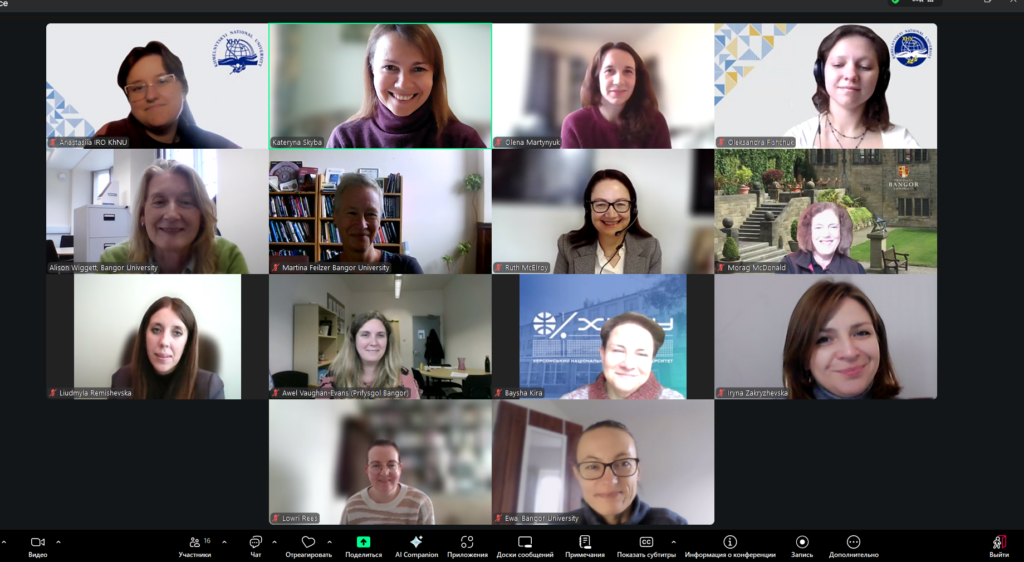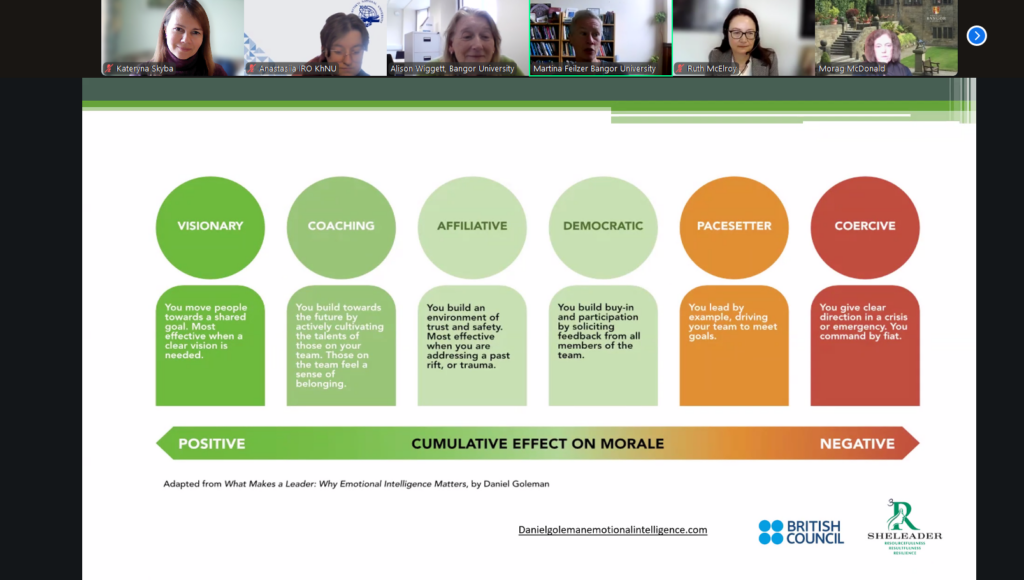On October 9, the second training session for women leaders in the field of higher education took place as part of the international project “3R SheLeader: Resilience, Resourcefulness, Resultfulness.” The project is implemented in partnership between Khmelnytskyi National University (KhNU) and Bangor University (Wales, UK), with the support of the British Council.
The theme of the second meeting was Resultfulness—the ability to achieve significant results through effective leadership, self-awareness, the development of team interaction, and personal accountability.

The training was dedicated to exploring the principles of effective leadership based on classical and modern models, such as John Adair’s Action-Centred Leadership, The Leadership Challenge (Kouzes & Posner), and Brené Brown’s "Dare to Lead" approaches, which emphasise vulnerability, trust, honesty, and values in leadership.
During the session, participants explored various leadership styles (coercive, visionary, affiliative, democratic, pace-setting, and coaching) according to Daniel Goleman’s model. They analysed their own approaches to team management and ways to increase work effectiveness in complex conditions.

A special part of the training was the "Resultfulness Panel," featuring three distinguished professors from Bangor University: Professor Morag McDonald, Professor Martina Feilzer, and Professor Ruth McElroy.
The professors shared their personal experiences of leadership in academic and educational environments, spoke about the challenges women face in executive positions, and emphasised the importance of the values of trust, mutual respect, and openness in team management.
The training participants had the opportunity to engage in practical tasks, discuss their own success stories, and formulate individual action plans aimed at increasing personal and professional resultfulness.
Khmelnytskyi National University expresses sincere gratitude to the British Council and Bangor University for supporting this initiative, which promotes the development of women's leadership, enhances professional competence, and creates an inclusive academic environment.
The next meeting in the series, scheduled for October 16, will be dedicated to the theme of Resilience—developing sustainability, adaptability, and the ability of women leaders to act effectively in conditions of uncertainty and change.
We invite all interested individuals to participate in the upcoming trainings and actively develop women's leadership in higher education!